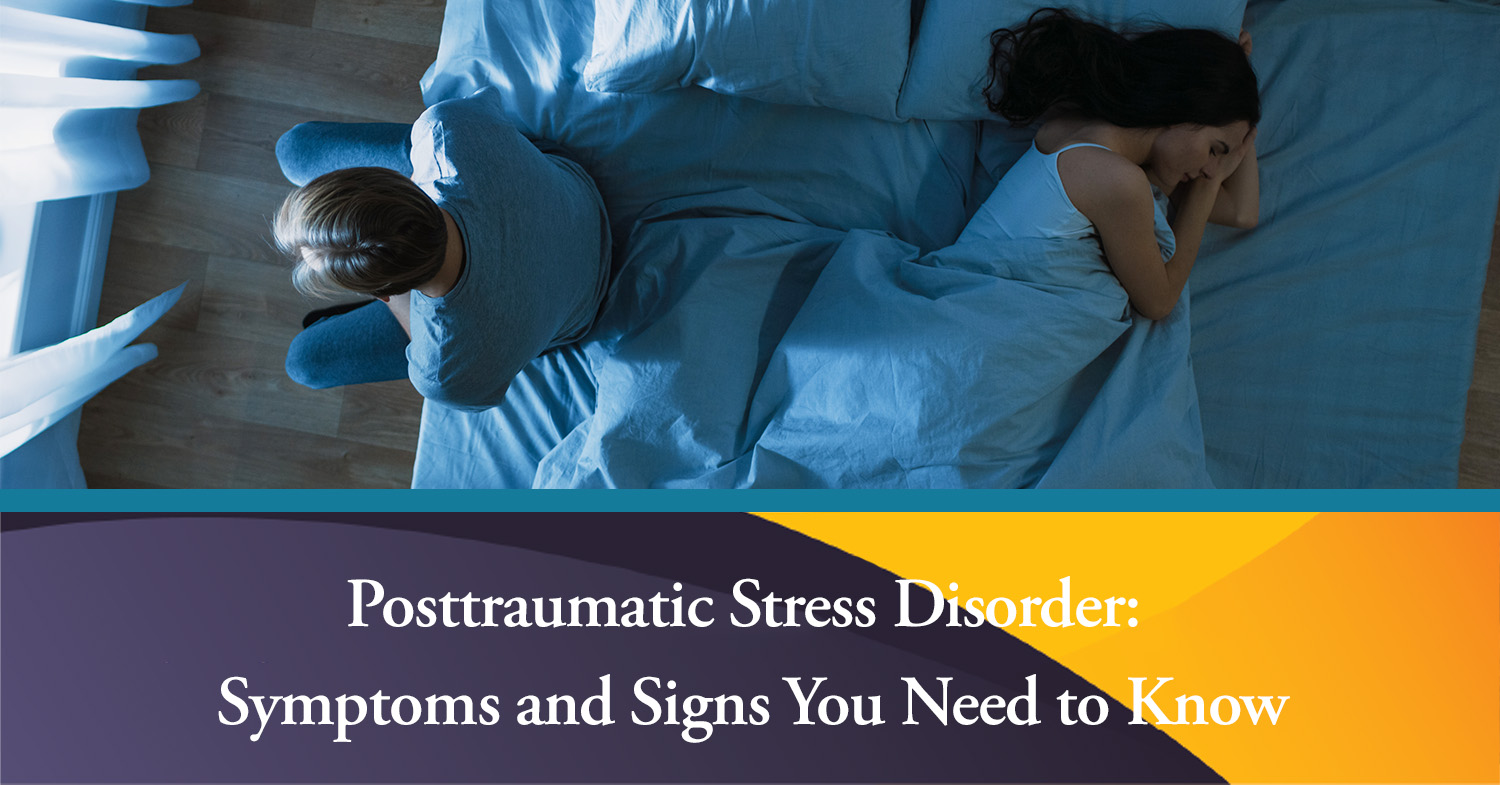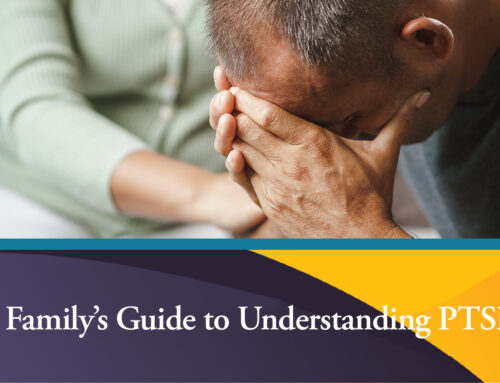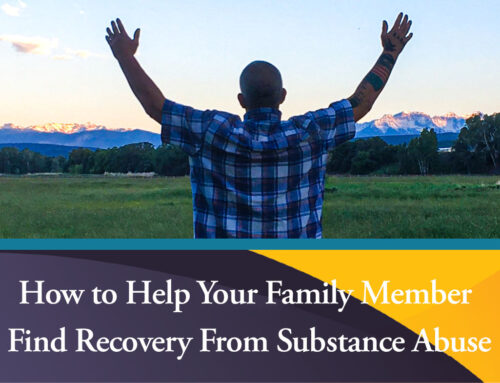Though it’s often associated with war, posttraumatic stress disorder (PTSD) can affect anyone. Let’s discuss the signs and symptoms of PTSD so you or a loved one can get the help needed.
Common Symptoms of Posttraumatic Stress Disorder
While posttraumatic stress disorder symptoms can differ, these are some of the most common signs and symptoms to look out for in yourself or a loved one.
Re-Experiencing Symptoms
When memories seem to turn against you, they can be traumatic in their own right. Especially when they are memories we’re trying to forget. If you’re been experiencing memories of your traumatic event often or flashbacks of the traumatic scene, then you are dealing with re-experiencing symptoms. These can include:
- Upsetting Nightmares
- Relieving of the traumatic events over and over or having flashbacks of the event
- Physical and/or emotional distress triggered by sights, sounds, and even smells that remind you of the traumatic event
Avoiding Situation That Reminds You of Event
Avoidance is a common reaction to trauma. But it can become problematic if it’s the main method of coping, as it can interfere with your ability to heal. If you are constantly trying to avoid situations or people that remind you of the traumatic or unpleasant experience you’ve been through, then you’re dealing with avoidance symptoms. These can include:
- Resisting thoughts or conversations about the traumatic event
- Avoiding people, places, or acts that remind you of the event
Hyperarousal
Hyperarousal is another common experience for those who have dealt with trauma and stressors. It is characterized by a heightened and sustained state of alertness to potential threats as an adaptive response that serves as a way of protecting oneself. Essentially, it is the fight-or-flight stress response, but kicked into overdrive and feeling like it’s never turned off. These symptoms can look like:
- Always being on the lookout for danger
- Pervasive jittery feelings
- Paranoia
- Getting startled by loud noises
- Difficulty sleeping
Negative Mood Symptoms
Posttraumatic stress disorder doesn’t always come with nightmares and flashbacks. Sometimes it seems like mood changes unrelated to the traumatic event. These negative moods can make you feel bad about yourself or others, and most times you may try to conceal your feelings. These symptoms can be sneakier but can be a sign of PTSD.
- Feelings of hopelessness
- Negative thoughts about yourself or the world
- Inability to have fun or pleasure
- Difficulty maintaining close relationships
- Emotional numbness
- Memory problems – even difficulty in recalling events associated with the trauma you experienced
Physical Symptoms
Some PTSD symptoms can show up as physical symptoms, along with other symtoms we’ve listed. These can include:
- Headaches
- Muscle tension
- Stomachaches
- Neurological, respiratory problems
- Musculoskeletal problems
- Cardiovascular problems
Why Does PTSD Have Physical Symptoms?
If posttraumatic stress disorder is a mental health problem, then how can it have physical symptoms?
This could be because when we feel stressed, our bodies release the hormones cortisol and adrenaline. This is the body’s automatic way to prepare to respond to a threat, called the fight-or-flight response (as mentioned above). Studies have shown that someone with PTSD will continue producing these hormones when they’re no longer in danger. This can do some serious wear and tear on the body over time, manifesting not only as headaches, stomachaches, and chest pains.
What Can You Do if You Think Have PTSD
If you think you have posttraumatic stress disorder, here’s what you can do next.
Talk to Someone You Trust
After a traumatic event, it’s normal to think, act, and feel differently than usual. Most people will start to feel better after a few weeks. If your symptoms last longer than a few months, are very upsetting, and disrupt your daily life, it’s time to reach out to someone you trust. A close friend or family member, your family doctor, or a clergy member can help support you while you find help.
Seek Help
It can be common to think that your PTSD symptoms will just go away over time. But this is unlikely to happen, especially if you’ve had symptoms for longer than a year. Just because symptoms won’t go away on their own doesn’t mean they can’t go away at all.
Getting the treatment you need can help you feel relief and lead to a better quality of life. It can also help you improve your relationships with loved ones and friends. Even if your trauma has happened years ago, treatment can help you.
Let Calvary Ranch Colorado Be There for You
Posttraumatic stress disorder treatment is possible. If you or a loved one is struggling with PTSD, it’s time to seek out help. Our Rehab Ranch in Montrose, CO, is a simple place with a simple program. Calvary Ranch Colorado is located on a working cattle ranch surrounded by rivers, lakes, trees, and majestic mountain views. Abundant wildlife also shows God’s creation and adds to the tranquility of this place. Check out our What to Expect information to learn more.



